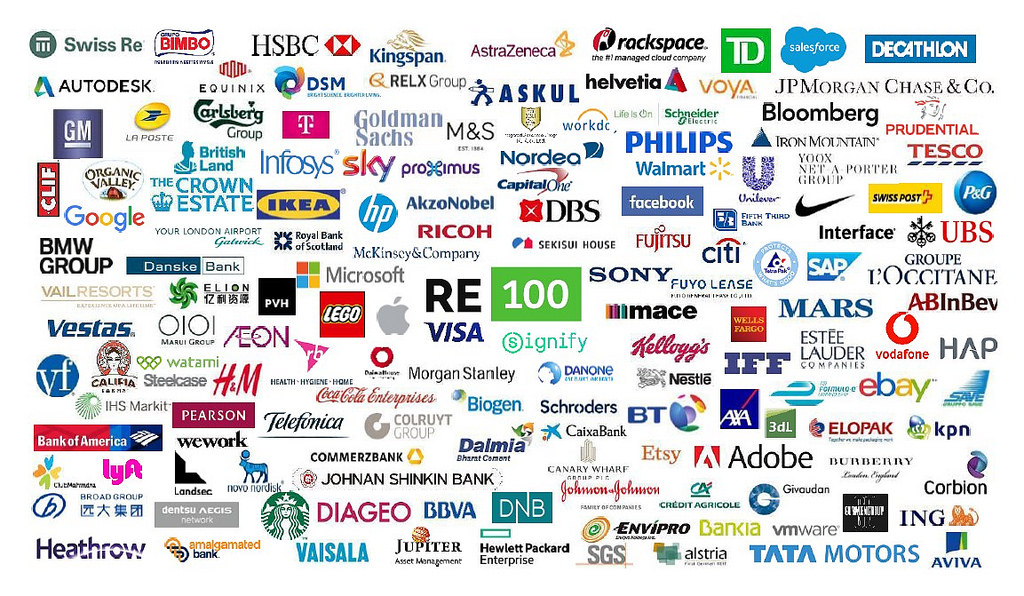
Renewable energy has long been stigmatised as expensive, unreliable and commercially non-viable. Yet over 150 of the worlds largest companies are moving to 100% renewable.
The Paris Agreement was lauded across the world as a victory for international cooperation and dialogue. Yet it was not the only major achievement to come out of the Paris Climate summit in December 2015. Alongside talks between government officials, companies were also looking for a way to show their commitment to a sustainable future. The most vocal of these companies united under the RE100, an initiative setup to help companies share their experience in corporate sourcing of renewable energy. The aim? To get major energy consuming companies to commit to 100% renewable electricity and so boosting the energy transition process.
According to a recent study by IRENA – “The world market for corporate sourcing of renewables in 2017 reached about 465 terawatt-hours, placing it close to France’s overall electricity demand”.
There are now over 150 major energy consuming companies who have joined the RE100. So what are the elements that encourage companies to make this transition?
- Economic feasibility. In a survey of RE100 members conducted by the Climate Group, 88% of respondents sited the economic case as a main driver for joining the RE100. Companies are interested in long term access to energy at the predictable and competitive prices that renewable energy now offers.
- Standardised approach. In 2015, the Greenhouse Gas Protocol launched its ‘Scope 2 Guidance’. This standard outlines the conditions in which companies can say they consume renewable energy and include the purchase of renewable energy in their environmental reports. These rules have since been integrated into other important standards and instruments, such as ISO and the CDP surveys. The rules endorse tracking systems, such as the Guarantee of Origin system in Europe and the REC system in the USA. Similar frameworks are now starting in many liberalising markets too. Most of these are based on the International Renewable Electricity Standard (I-REC).
- Climate Change. Investors, as well as consumers, increasingly expect companies to take action against the threat of climate change. Large companies must plan over the long term and are concerned about what the world (and their businesses) will look in 2030, 2040 and beyond.
As new companies continue to join the RE100 and transition to 100% renewable energy, some are looking for ways to go even further in speeding on the energy revolution. We are proud that many companies choose EKOenergy to demonstrate their commitment to a sustainable future: SAP, HSY, Groupe Rocher, Schüco, Genelec, VMware, Workday, Olvi, Saimaa Brewing Company, Finlayson and many others.
If you aren’t using EKOenergy labelled electricity yet, but are interested in joining this growing group, please get in contact!
Posted on 6 November 2018

